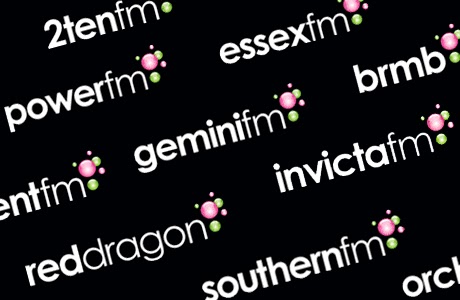Globalisation

For my entire childhood, all of our family holidays were taken in England (with the exception of one weekend at Disneyland, Paris). As a result, one of the most closely-followed traditions of the trip away involved tuning in to all the local radio stations we could pick up on the long drive down to the South coast, across to the Westcountry, or up to East Anglia.
One thing you notice by doing this is how remarkably similar some stations sound. Often, you'd hear the same jingles, slogans – even DJs – from stations in close geographical proximity. Of course, this was because they were owned and operated by the same people, but this was far less noticeable in the days before digital radio and the internet made it easy to spot identical logos and designs on stations from outside your region.
The radio industry has recently gone through a period of massive consolidation. Where once there were a dozen major players, now there are just a handful of super-groups that control the majority of local stations. Inevitably, this means more and more content is being shared across stations, turning local services into relays for nationwide programming. It also means the loss of some fantastic local brands.
Kent's Invicta FM will become one of those casualties, as will holiday-favourites Gemini and Power FM; next-door neighbour's Essex FM is also facing the chop. Most of these will become Heart satellites (Power's going to become Galaxy, and the excellent Choice FM will also become an affiliated station). It'll be a great shame to lose these iconic brands, but to be honest there won't be a massive change to what you hear on-air. Which in itself is quite sad.


